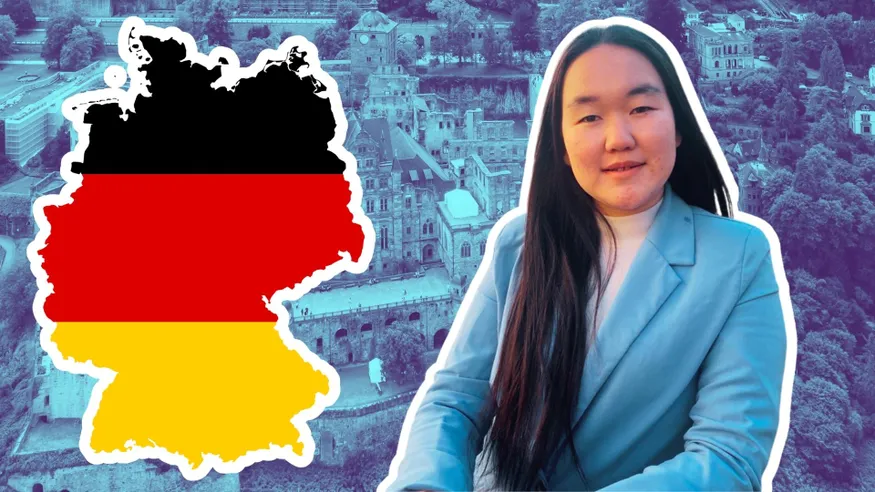QazMonitor interviewed Aidana Kizatova, a talented 21-year-old student at Abai Kazakh National Pedagogical University (KazNPU). She has recently returned from Heidelberg University of Education where she spent an exciting winter semester. She got there thanks to the DAAD scholarship—a prestigious grant from Germany—and at school, GPA of over 3.90 and years of research serve as testimony. Want to study in Europe just like Aidana? We bring you: an actually useful guide.
Research everything. Don't wait until your master's.
“When high school graduates apply to universities in Kazakhstan, they start planning to study abroad only after finishing their bachelor’s for their master’s program. Don’t make this mistake! You must do extensive research way ahead of time. Check what universities your institution has partnership programs with. Don’t blindly trust the name and status of the university [you are applying for your bachelor’s] without checking its opportunities.”
”Many don’t even know that nearly 50% of students at Abai university have a chance to study abroad.”
Look at career opportunities
“I major in two foreign languages, so I can work as a teacher, translator or even a journalist. Personally, I chose KazNPU for their strong foundation in languages. I changed my initial plans to learn French there once I learned how well they teach German and how many opportunities there are to study in Europe. In my freshman year, I fell in love with the German language immediately.”
Google your teachers
“Another factor is the faculty. Google the professors who will conduct your courses. When I found out that Tanat Ayapova was teaching at Abai University, my choice became obvious. I have always been a fan of her work. She taught Kazakh in Arizona and wrote so many language course books. Every language history class with her is inspiring.”
Say no to useless certificates
“Instead of hoarding useless certificates, ask you international office what will guarantee you a scholarship. This was how I got the DAAD grant. My motivation letter only included recognized projects and papers. I tried to demonstrate my critical thinking skills – Europe values them the most. You should take part in scientific competitions on regional and international levels. I started participating in them from grade five, and now the hard work paid off.”
“So many students take part in competitions and research projects that do not have any value to their goal.“
Don’t be a sheep in the herd. Make your own friends.
“In Kazakhstan, you are always in the same group. First, at school, then at college or university: your friendship is built on proximity. In Germany, there is a different group of people for each course you take since students get to choose their desired subjects, so you can make friends based on common interests.
I was surrounded by highly motivated students. It struck me when once at a party I mentioned I had a deadline for an assignment and my friends kicked me out of the room. They said half-jokingly: ‘don’t come back until you have finished your work’. Everyone is responsible and takes studies seriously.”
Travel: get the most out of your scholarship
“[In Europe], you can easily travel to other countries without breaking your budget. I visited 15 cities in eight countries during such a short period of time. My scholarship from the German government was 5500 euros for five months, which included dormitory, catering, medical insurance, and return flight to Kazakhstan."
"During the break, we organized a group trip to France, Czech Republic, and Poland. I achieved my lifelong dream of celebrating New Year in Paris. I also visited Spain with two girls from Kazakhstan who also had the DAAD grant. Can you imagine paying only 5000 tenge for a one-way ticket? Yet, the most memorable experience was when I went to Switzerland and Italy on my own. I spent around 200 euros on a 4-day bus trip.”
Do your job well
“In Germany, nobody will make a big deal out of you giving a 100% in your work. It is expected—everyone does it. Students do not even think about missing deadlines or plagiarizing. To get credit for your assignments, you must present your view and perspective on the topic you’ve learnt. Personal contribution and effort all the time. I follow this rule as a teacher of English preparing for lessons with my students. If I don’t devote my time and resources to make the lessons engaging and lively, then what is the point of such work?”
